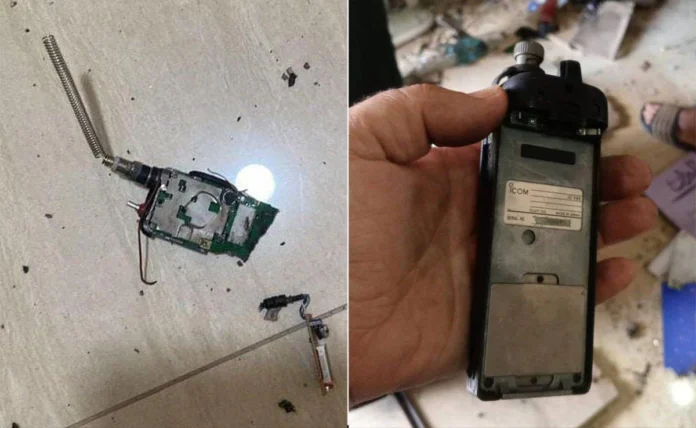Overview of Recent Events
On September 17 and 18, 2024, Lebanon witnessed a series of targeted explosions involving pagers and walkie-talkies in Hezbollah strongholds across Beirut and southern Lebanon. These events resulted in the deaths and left over others wounded. The sudden and unexpected nature of the attacks has thrown Lebanon into a deeper state of uncertainty, adding a dangerous new layer to the already tense geopolitical landscape.
The Pager Blasts: A Strategic Low-Tech Attack
The initial blasts on September 17 were carried out using modified pagers, devices that many had deemed obsolete. Despite their simplicity, these Taiwan-made pagers were used to deliver devastating blows, packed with just a few grams of explosives but enough to cause significant damage when remotely detonated. These blasts appear to have been designed to target Hezbollah officials, aiming at key figures within the group.
The use of pagers, low-tech as they may seem, showcases a shift in how everyday technology can be adapted for nefarious purposes. The simplicity of the devices contrasts with their sophisticated tactical use. The timing of these explosions has led many analysts to believe that Israel, through its intelligence agency Mossad, is potentially behind the attacks, given the historical enmity between Hezbollah and Israel. Mossad has previously been linked to complex covert operations against Hezbollah targets, and these blasts fit the profile of such operations.
Walkie-Talkie Explosions: An Escalation in Communications Warfare
Following the pager explosions, a second wave of attacks took place on September 18, this time using walkie-talkies. Devices used by Hezbollah members across Beirut and southern Lebanon suddenly exploded, killing and injuring many. These attacks not only inflicted physical damage but also severely disrupted Hezbollah’s communications network. The attacks on both pagers and walkie-talkies indicate a deliberate attempt to cripple the group’s operational capabilities.
This calculated assault on Hezbollah’s communication devices suggests a well-orchestrated campaign aimed at weakening the group’s organizational structure. Experts argue that the use of such unconventional methods could signify a shift in how modern-day warfare is waged, where even mundane devices can become weapons of destruction.
Possible Israeli Involvement
While Hezbollah has yet to officially blame Israel for these attacks, the methods employed and the specific targeting of the group suggest Israeli involvement. The Mossad has a long-standing reputation for carrying out covert operations against Hezbollah, and the use of technological devices to cause destruction fits within Israel’s historical modus operandi. Sources close to the situation suggest that these recent explosions are part of an ongoing campaign by Israel to destabilize Hezbollah and curb its influence in Lebanon and the region.
The relationship between Hezbollah and Israel is complex, with the latter consistently viewing the former as an existential threat. Israel’s use of covert operations to undermine Hezbollah’s capabilities has been well-documented, and these latest blasts appear to be part of a broader strategy to weaken Hezbollah ahead of any potential future military confrontations.
The Geopolitical Implications
The explosions come at a critical time, as tensions between Israel and Iran — Hezbollah’s chief backer — are escalating. Hezbollah serves as a crucial proxy for Iran in its broader regional power struggle with Israel. The group’s strategic position in Lebanon makes it a pivotal player in the Middle East, and attacks on its leadership and communication networks could have far-reaching implications for regional stability.
Lebanon itself is already grappling with a severe economic collapse and political disarray. The recent blasts, coupled with the potential for further violence, risk dragging the country into an even deeper crisis. As Hezbollah is a significant player in Lebanese politics, any perceived attack on the group could have widespread repercussions, potentially leading to retaliatory strikes or even larger-scale conflicts involving Israel, Hezbollah, and Iran.
International Reactions and Concerns
Following these events, the international community has voiced concerns about the potential for further escalation. The United States, in particular, has called for restraint from both Israel and Iran, urging both sides to avoid actions that could lead to a full-scale regional conflict. The U.S. has also warned Hezbollah against retaliating, as this could lead to an uncontrollable cycle of violence. Other countries have similarly issued statements of concern, emphasizing the need for diplomatic solutions over military action.
The Future of Hezbollah and Lebanon
The fallout from the pager and walkie-talkie explosions remains uncertain. Analysts are closely watching Hezbollah’s next moves, as the group’s response could determine the trajectory of the ongoing conflict in the region. While the blasts have dealt a significant blow to the group’s infrastructure, Hezbollah’s deep roots in Lebanon and its ties to Iran mean it is unlikely to be severely weakened in the long term.
In conclusion
the pager and walkie-talkie explosions targeting Hezbollah represent a new chapter in the volatile Middle Eastern conflict, blending low-tech devices with highly strategic objectives. These attacks illustrate how modern warfare is evolving, with even the most basic technologies now capable of playing pivotal roles in geopolitical struggles. As tensions between Israel, Hezbollah, and Iran continue to simmer, the risk of further violence remains high, making this one of the most closely watched developments in the region.



